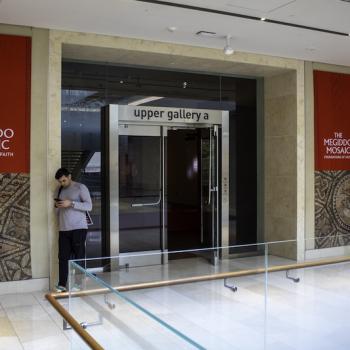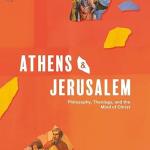
Amos stands out among the Twelve Prophets as an unexpected and powerful voice of God’s presence and judgment in a time of great nationalism, confusion, and conflict. Identified as a sheep farmer from an agriculturally significant region (Amos 1:1), Amos receives visions so vivid and unmistakable that he knows without a doubt they are from God. There is some learning from Amos that we could do as a church in the West.
A Tale of Two Kings
These visions, Amos clarifies, came in the reigns of Judah’s King Uzziah and Israel’s King Jeroboam, son of Joash (Amos 1:1). Both of these kings represent the ends of an interesting dichotomy. On one end of the spectrum, Uzziah tried to do right by God and his country, focusing on Judah’s military, economy, infrastructure, and agriculture. Yet, in the end, it was narcissistic pride and a failure to go far enough as a leader that blinded him, and God took him down, punishing him with leprosy and isolation (2 Kings 14:2-4; 2 Chronicles 26).
On the other end of the spectrum, King Jeroboam, son of Joash, did not follow God’s way, and his rule was defined by self-interest. Though the military was successful and prosperous, Israel expanded its borders, and economic prosperity brought a sense of peace (2 Kings 14:24-29). I see Amos as a quiet and faithful individual, aware of the times but not shaped nor overtaken by them.
A Message for Our Times
The message of Amos resonates deeply with today’s world, where nationalism, conflict, and societal divisions have not only shaped individuals but also overtaken the church. As in the day of Amos, both the left and right sides of the political spectrum have missed the mark, brought problems, and blurred the line between what is good and what is self-serving pride.
The Lord’s Roar and the Land’s Response
In the visions that Amos has, the Lord roars like a roaring lion and thunderous presence—speaking the truth and delivering harsh critique (Amos 1:2). It also cannot be ignored that the sin and brokenness of their spiritual and political lives have begun to manifest in the land (Amos 1:2; 4:6; 9:14). Scripture often conveys in many ways that our inner lives will always manifest in our physical realities.
Judgment on Injustice
God’s judgment, proclaimed through Amos, targets regions and centers of power guilty of injustice, immoral living, cultic practices, and mistreatment of the poor and marginalized. They have committed unpardonable sins, including silencing prophets and forcing Nazirites to break their vows and become drunkards (Amos 2:12). Israel has become a political, ethical, and societal disaster.
The Quiet and Faithful
Into this mess, God sends Amos—a man rooted in rural rhythms, familiar with cultural traditions, yet unaffiliated with any school of prophets (Amos 7:14). Despite opposition and slander, Amos remains obedient and steadfast. His story reminds us that God often calls the overlooked and marginalized—the quiet and faithful ones—to rise up and speak about living a different way.
Living Quietly and Faithfully
A few years ago, I felt 1 Thessalonians 4:11-12 highlighted as a life verse, guiding me to “make it your goal to live quietly, do your work, and earn your own living.” What I am realizing more and more is that this call to lead a quiet life is woven throughout the whole of scripture. The Greek verb hésuchazó means to be quiet or at rest, both physically and spiritually, reflecting tranquility and calmness.
Amos models hésuchazó by standing firm in the quiet confidence of God’s calling, speaking the truth without being swayed by the chaos and nationalistic corruption around him. In today’s world of noisy confusion and constant conflict, we too need that calm, unshakable peace that allows us to listen for God’s voice and speak with courage and clarity to the times around us.
A Call for Genuine Worship
There comes a time when I am not sure more worship or worship gatherings resolve the problem because even our self-described prophetic worship becomes an act confused with bad thinking and self-interest (Amos 5:21-22). Many professional worship leaders today are calling for a return to God’s heart, but I believe God is saying, “Spare me the sound of your songs” because it’s just another stage for you, and you are still not letting justice flow like a river (Amos 5:21-24).
Prophetic Voices for Today
I believe now more than ever that we need more people like Amos—those who walk quietly with wisdom and an awareness of God’s heart and Spirit. These aren’t people wanting position or power but are those who identify as “one of the sheep farmers from Tekoa” (Amos 1:1, GW). The power of change doesn’t come through kings or political leaders because they, too, will face judgment. Instead, our hope is that God will say, “I will restore my people”—a restoration that requires confession, surrender, and correction (Amos 9:14). As The Bible Project report on Amos says, “It got to the point where Amos couldn’t take it anymore. He sensed God’s call to trek up north to Bethel, an important city with a large temple, to start announcing God’s word to the people. This book is a collection of his sermons, poems, and visions uttered over the years. They were later compiled to give God’s people a sense of his divine message to the northern kingdom—a message we still need to hear today.” May we get the right people who just can’t take it anymore calling us to repent, realign, and recalibrate.
Prayers from Amos
I think Amos also gives us prayers to intercede with as we wait for the quiet and faithful to speak:
- “Almighty, LORD, please forgive us! How can the descendants of Jacob survive? There are so few of them?” (Amos 7:2, GW).
- “Almighty, LORD, please stop! How can the descendants of Jacob survive? There are so few of them.” (Amos 7:5, GW).
I have spent half of my morning learning from Amos. I encourage you to spend some time looking at how rich this story is and just how relevant it is for us in the West. More than ever, perhaps we need to do some learning from Amos – the sheep farmer from Tekoa.
















